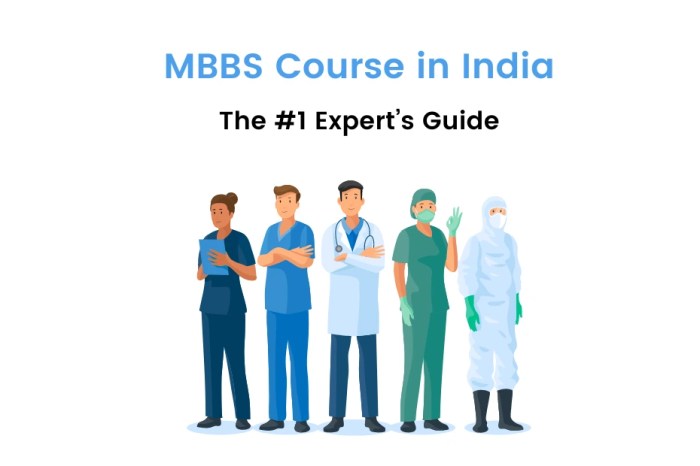- Physicians in various medical specialties (e.g., surgery, internal medicine, pediatrics)
- Surgeons in various surgical subspecialties (e.g., neurosurgery, cardiac surgery, plastic surgery)
- Researchers in medical institutions or pharmaceutical companies
- Healthcare administrators in hospitals or healthcare organizations
- Medical educators in universities or medical colleges
Responsibilities and Ethical Considerations
As medical professionals, MBBS graduates bear significant responsibilities:
- Providing compassionate and ethical healthcare to patients
- Maintaining patient confidentiality and privacy
- Continuously updating their medical knowledge and skills
- Adhering to professional codes of conduct and ethical guidelines
MBBS graduates must navigate complex ethical dilemmas and make decisions that prioritize patient well-being while upholding the principles of medical ethics.
Curriculum and Training

The MBBS curriculum is designed to provide students with a comprehensive understanding of medical sciences, clinical skills, and ethical principles. The duration of the MBBS program typically spans five and a half years, divided into various phases.
Curriculum Components
The curriculum encompasses a wide range of subjects, including:
- Basic sciences: Anatomy, Physiology, Biochemistry, Microbiology, and Pathology
- Clinical sciences: Medicine, Surgery, Pediatrics, Obstetrics and Gynecology, and Psychiatry
- Preventive and social medicine: Community health, epidemiology, and biostatistics
- Medical ethics and professionalism
Practical Training and Clinical Rotations
Practical training and clinical rotations form an integral part of MBBS education. Students are exposed to real-world medical settings, gaining hands-on experience in patient care and clinical decision-making. These rotations typically include:
- Clinical clerkships in various departments, such as medicine, surgery, and pediatrics
- Emergency room rotations
- Community health outreach programs
Assessment Methods
Students’ knowledge and skills are evaluated through a combination of assessment methods, including:
- Written exams: Multiple-choice questions, short answer questions, and essays
- Practical exams: Objective structured clinical examinations (OSCEs), bedside examinations, and surgical skills assessments
- Logbooks: Documentation of clinical experiences and patient encounters
- Research projects: Independent research and presentations
These assessment methods ensure that students demonstrate a comprehensive understanding of medical concepts, clinical skills, and professional conduct.
Specializations and Career Paths
Upon completing an MBBS degree, doctors can choose to specialize in a specific field of medicine. Specializations allow doctors to develop in-depth knowledge and skills in a particular area, enhancing their expertise and career opportunities.
The process of choosing a specialization typically involves considering personal interests, career goals, and the availability of training programs. Doctors can pursue advanced training through residency programs, which typically last three to seven years depending on the specialty. During residency, doctors receive hands-on experience, mentorship, and specialized training in their chosen field.
Career Paths and Earning Potential, Meaning of mbbs degree
The medical field offers a wide range of career paths and earning potential, depending on the chosen specialization and experience. Some of the highest-paying medical specialties include:
- Cardiology
- Dermatology
- Ophthalmology
- Orthopedic Surgery
- Plastic Surgery
It’s important to note that earning potential can vary based on factors such as location, practice setting, and experience. Additionally, doctors may choose to pursue further education, such as a fellowship or subspecialty training, to enhance their skills and earning potential.
Research and Innovation
Research is the cornerstone of medical advancements, driving progress and improving patient outcomes. MBBS graduates are well-equipped to engage in research and contribute to the medical field’s evolution.
Research opportunities for MBBS graduates are abundant. They can collaborate with medical institutions, research centers, or pharmaceutical companies to conduct clinical trials, investigate new treatments, or develop innovative medical technologies. By actively participating in research, MBBS graduates can make meaningful contributions to medical knowledge and patient care.
Groundbreaking Research by MBBS Graduates
Numerous groundbreaking research studies have been conducted by MBBS graduates, leading to significant medical breakthroughs. For instance, Dr. James Watson, an MBBS graduate, co-discovered the structure of DNA, revolutionizing our understanding of genetics. Similarly, Dr. Jonas Salk, another MBBS graduate, developed the polio vaccine, eradicating the crippling disease from many parts of the world.
These examples highlight the invaluable role MBBS graduates play in medical research and innovation. Their contributions continue to shape the future of medicine and improve the lives of countless individuals.
Global Impact and Recognition

MBBS degrees are highly recognized and accepted worldwide. Graduates are eligible to practice medicine in most countries, including the United States, the United Kingdom, Canada, and Australia. This global recognition is due to the rigorous curriculum and training that MBBS graduates receive, which meets international standards.
MBBS graduates play a vital role in addressing healthcare challenges worldwide. They work in a variety of settings, including hospitals, clinics, and research institutions. They provide essential medical care to patients from all backgrounds, and they contribute to the development of new treatments and cures for diseases.
Case Studies of Successful MBBS Graduates
There are many examples of successful MBBS graduates who have made significant contributions to healthcare worldwide. One such example is Dr. Shanthi Mendis, a Sri Lankan physician who is known for her work on cardiovascular disease. Dr. Mendis has conducted groundbreaking research on the causes and prevention of heart disease, and she has helped to improve the lives of millions of people around the world.
Another example is Dr. Atul Gawande, an Indian-American surgeon who is known for his work on patient safety and healthcare quality. Dr. Gawande has written several best-selling books on healthcare, and he has helped to raise awareness of the importance of patient safety. His work has helped to improve the quality of healthcare for patients around the world.
These are just a few examples of the many successful MBBS graduates who are making a difference in the world. The global recognition and acceptance of MBBS degrees is a testament to the quality of the education and training that graduates receive.
Ending Remarks
The MBBS degree is not merely a qualification but a testament to the dedication and commitment of medical professionals. It empowers graduates to make a profound impact on the lives of countless individuals, contributing to the advancement of healthcare and shaping a healthier future for all.





